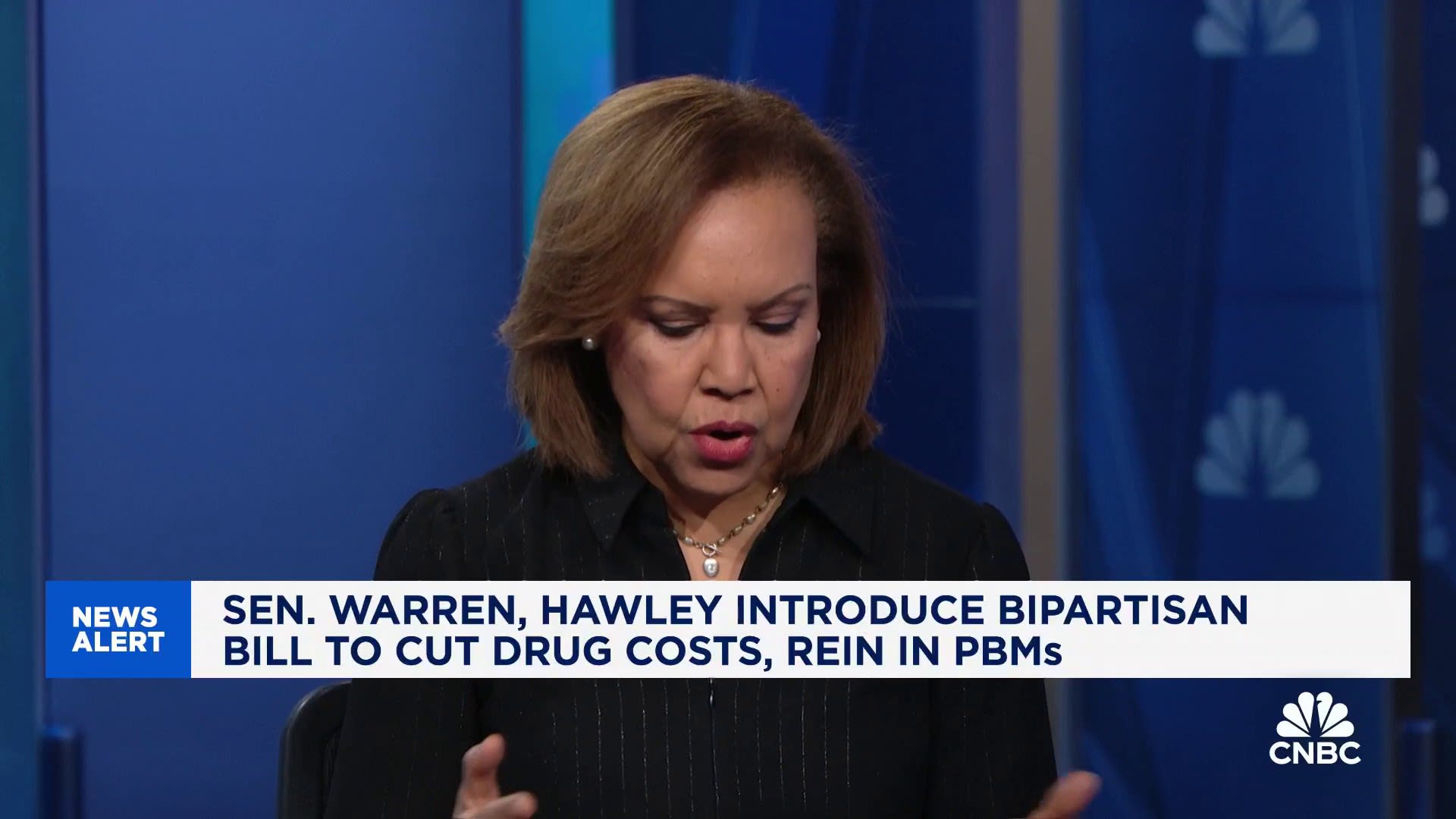UnitedHealth Group signage is displayed on a monitor on the floor of the New York Stock Exchange.
Michael Nagle | Bloomberg | Getty Images
Shares of major health-care companies fell as much as 5% on Wednesday as investors feared pressure from lawmakers and patients could force changes to their business models.
The declining stocks include UnitedHealth Group, Cigna and CVS Health, which operate three of the nation’s largest private health insurers and drug supply chain middlemen called pharmacy benefit managers, or PBMs. They also own pharmacy businesses. Shares of all three companies closed at least 5% lower.
The stock reaction on Wednesday appeared to be in response to new bipartisan legislation that aims to break up PBMs, which was first reported by The Wall Street Journal. PBMs have faced yearslong scrutiny from Congress and the Federal Trade Commission over allegations they inflate drug costs for patients to boost their profits.

The share moves also come as insurance companies and their practices face heightened public criticism following the fatal shooting of Brian Thompson, the CEO of UnitedHealth Group’s insurance arm, last week. Health stocks had already fallen in the days after Thompson’s killing.
A Senate bill, sponsored by Sens. Elizabeth Warren, D-Mass., and Josh Hawley, R-Mo., would force the companies that own health insurers or PBMs to divest their pharmacy businesses within three years, the Journal reported. The lawmakers told the Journal that a companion bill is scheduled to be introduced in the House on Wednesday.
“PBMs have manipulated the market to enrich themselves—hiking up drug costs, cheating employers, and driving small pharmacies out of business,” Warren said in a release. “My new bipartisan bill will untangle these conflicts of interest by reining in these middlemen.”
The release added that health-care companies that own both PBMs and pharmacies are a “gross conflict of interest that enables these companies to enrich themselves at the expense of patients and independent pharmacies.”
The largest PBMs — UnitedHealth Group’s Optum Rx, CVS Health’s Caremark and Cigna’s Express Scripts — are all owned by or connected to health insurers. They collectively administer about 80% of the nation’s prescriptions, according to the FTC.
PBMs sit at the center of the drug supply chain in the U.S., negotiating rebates with drug manufacturers on behalf of insurers, large employers and federal health plans. They also create lists of medications, or formularies, that are covered by insurance and reimburse pharmacies for prescriptions.
The FTC has been investigating PBMs since 2022.
— CNBC’s Bertha Coombs contributed to this report.
EMEA Tribune is not involved in this news article, it is taken from our partners and or from the News Agencies. Copyright and Credit go to the News Agencies, email news@emeatribune.com Follow our WhatsApp verified Channel



